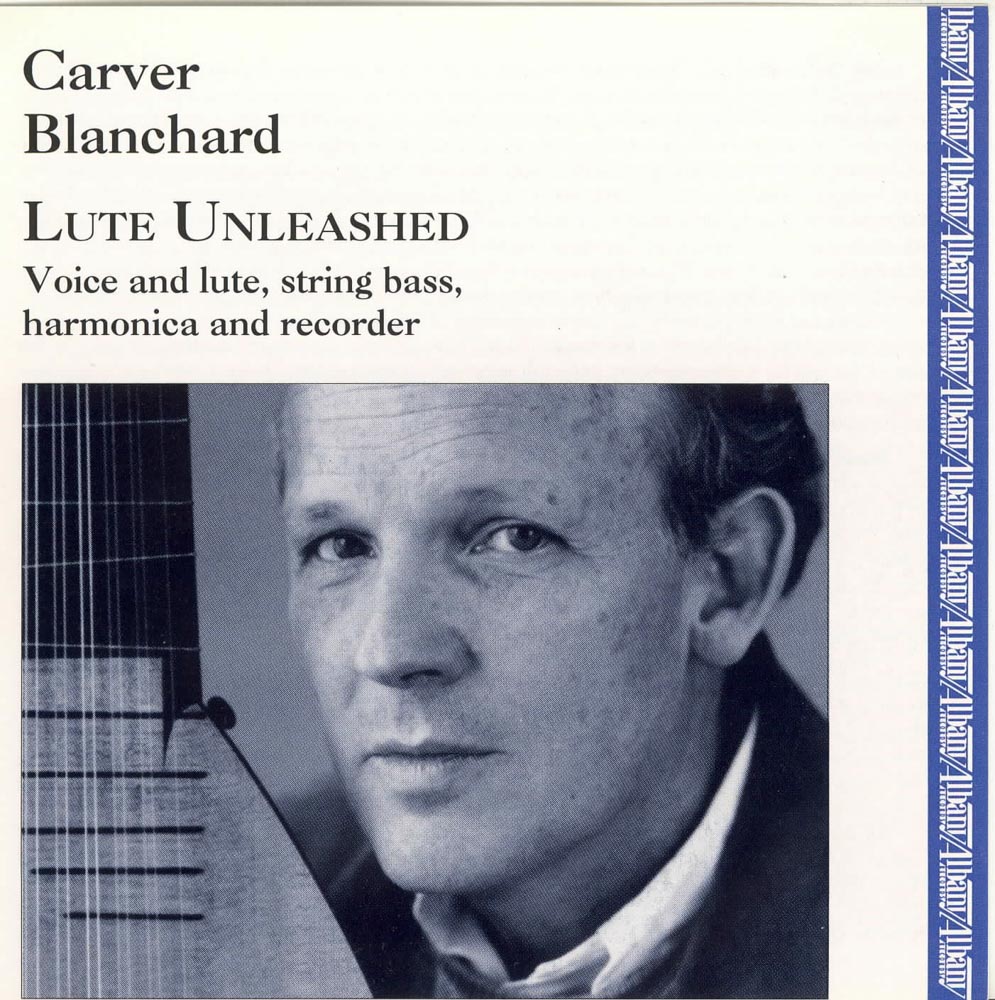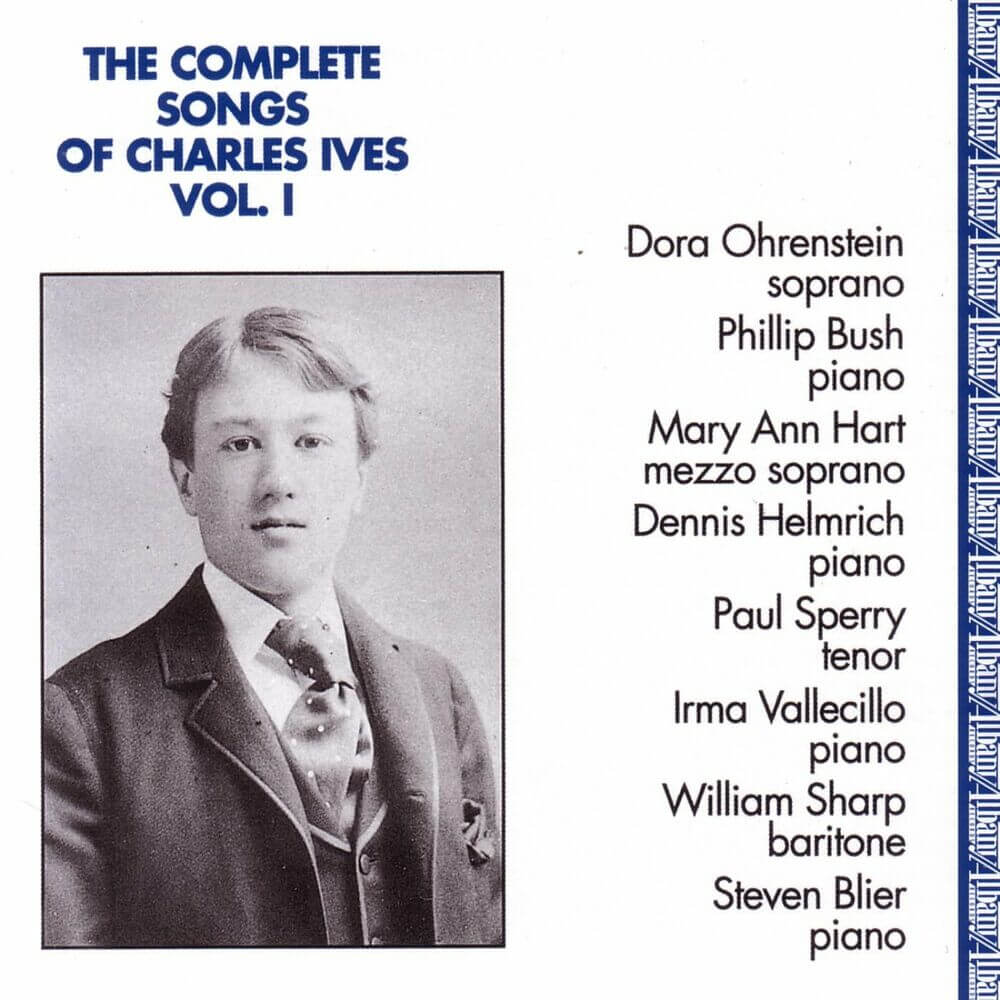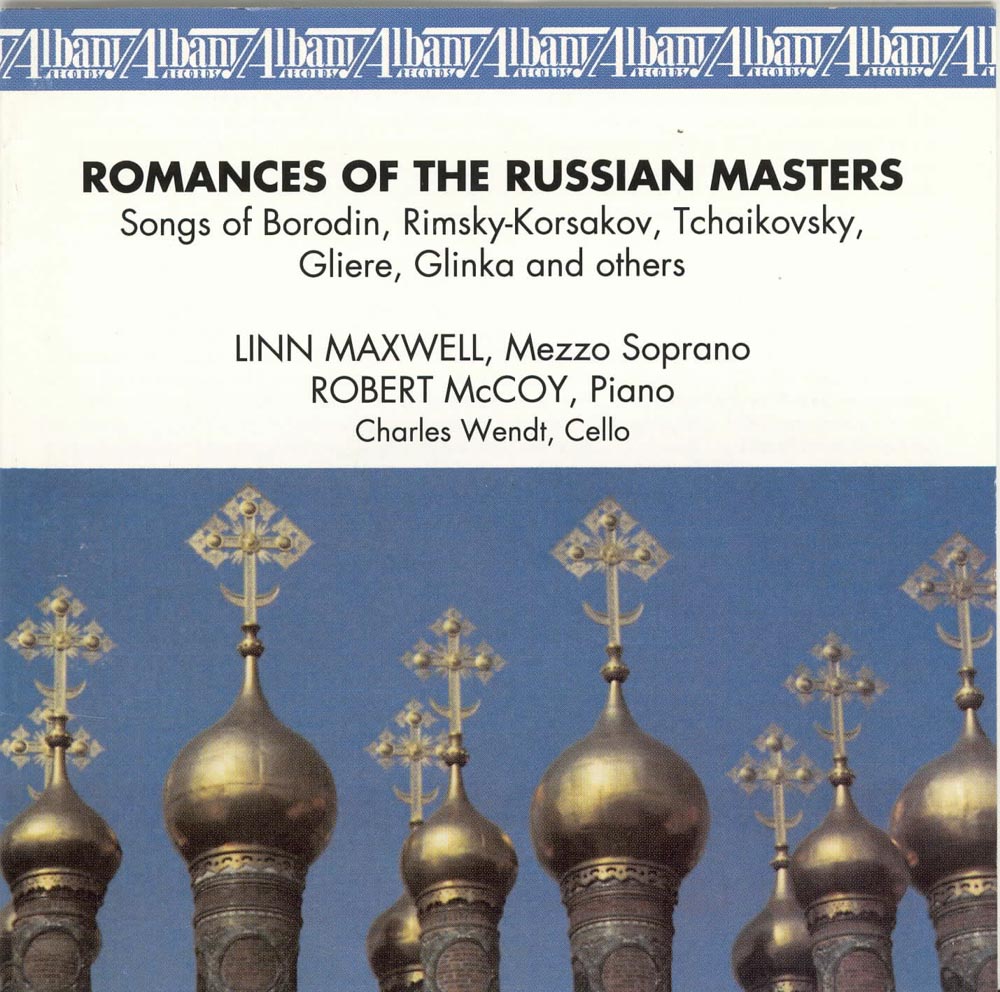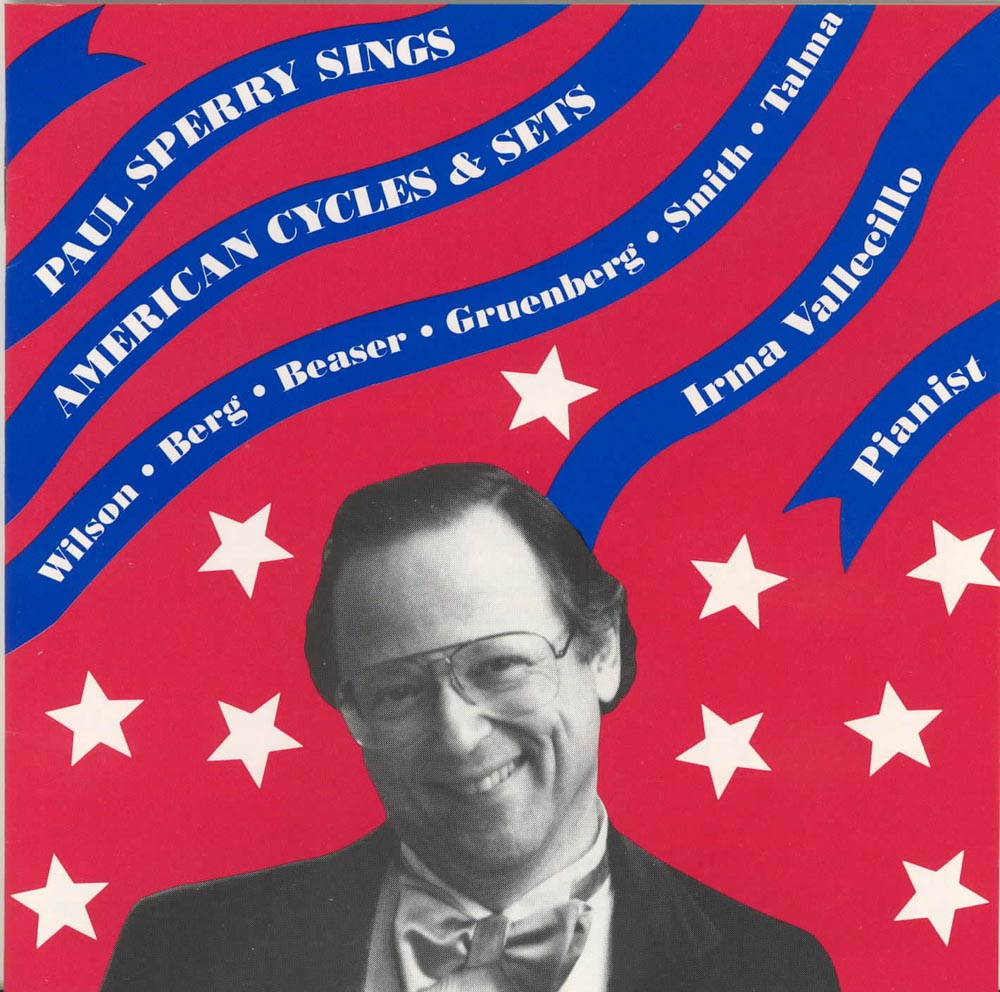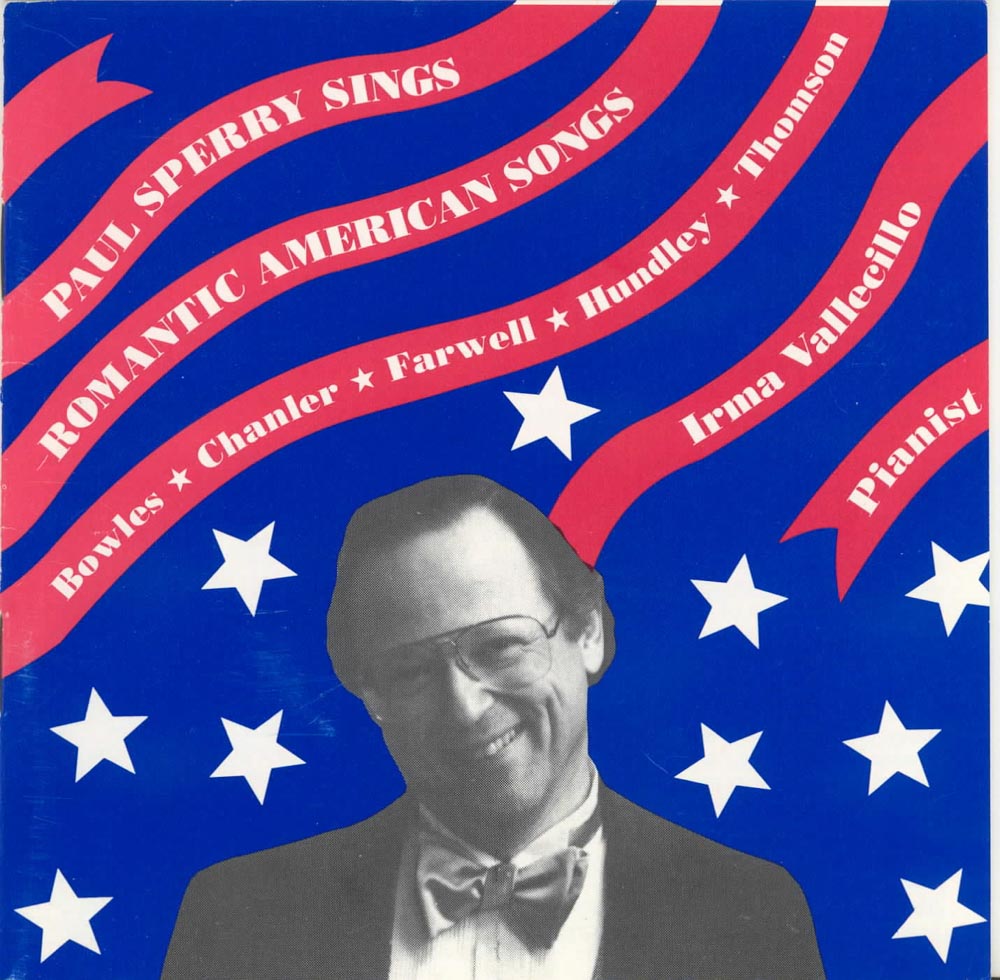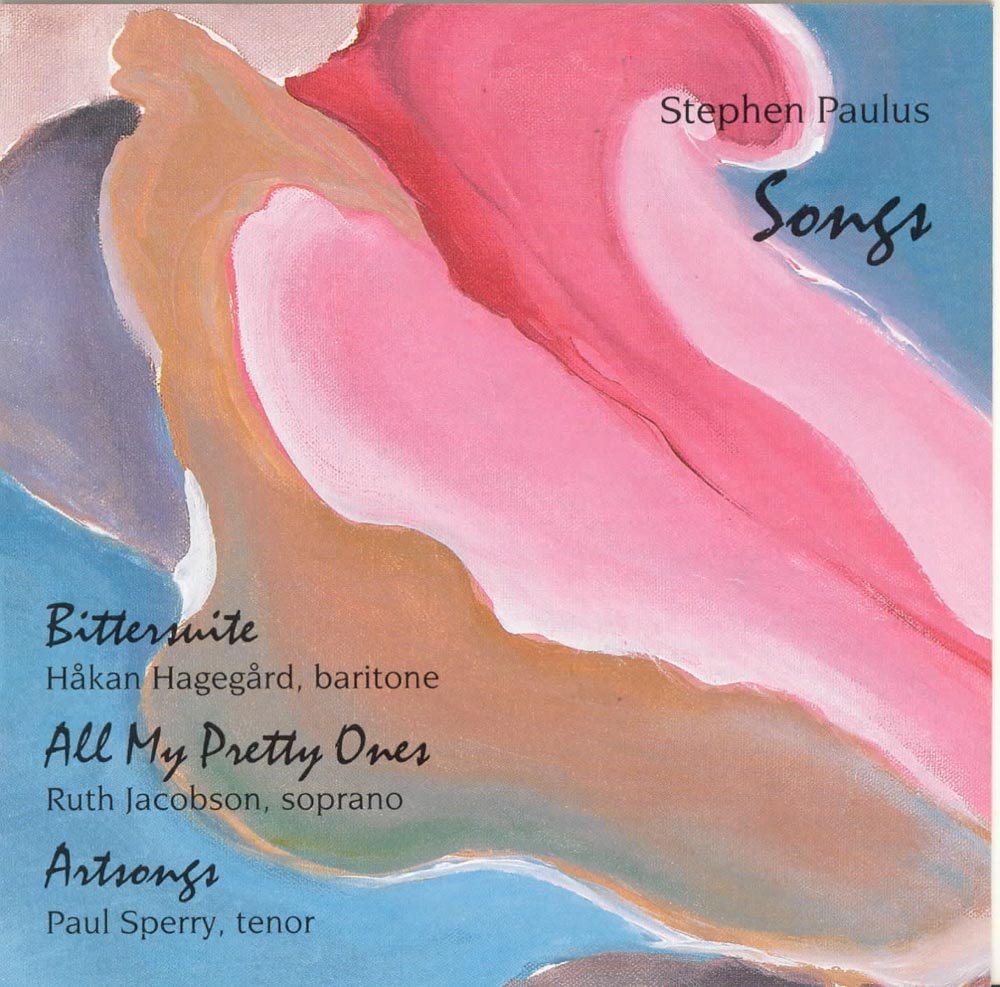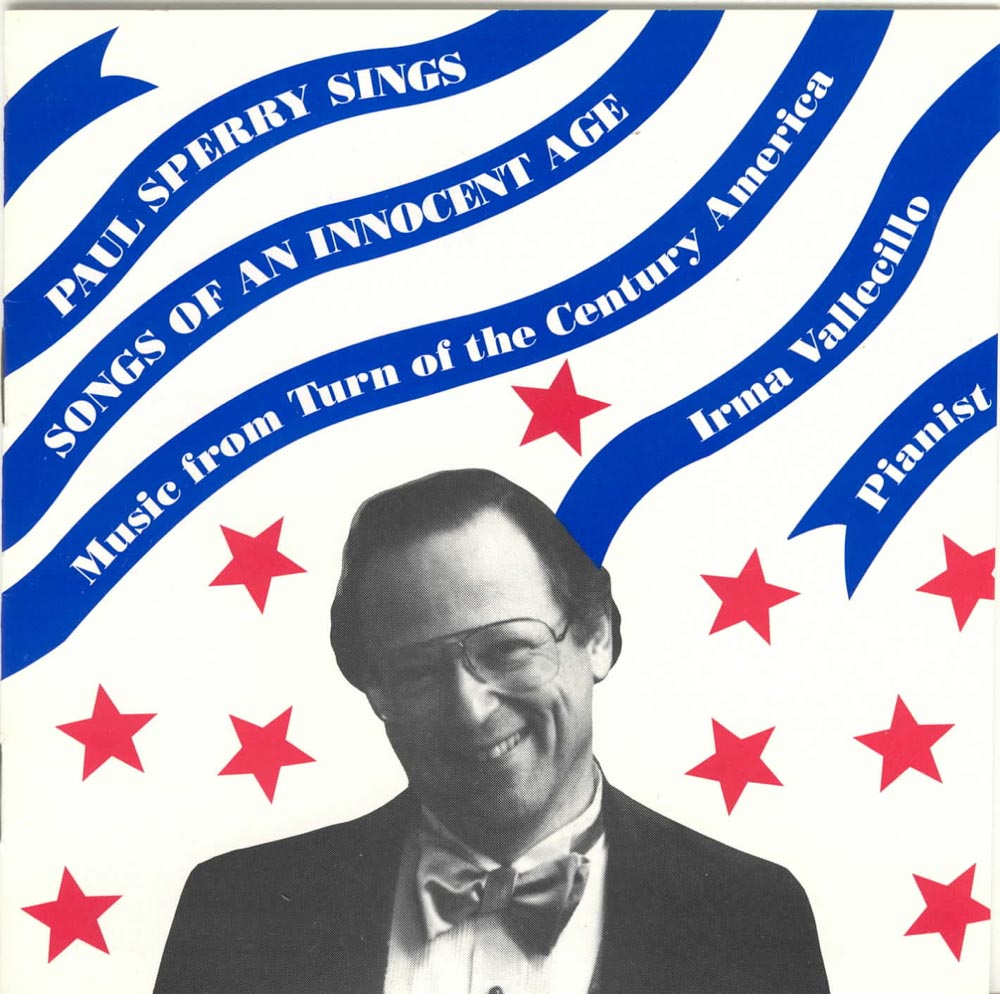Catalog #: TROY0083
Release Date: April 1, 1993VocalCarver Blanchard writes: "Lute Unleashed is a traditional recording in that it presents the work of a composer-arranger whose instrument is the lute. In centuries past that is what professional lutenists were; indeed had to be if they were to support themselves. An appointment to a court or great house afforded one of the few opportunities for regular employment and carried with it a particularly wide range of duties. These included playing in dance ensembles, accompanying singers, providing entertainment for banquets and special occasions, and of course, responding to the spontaneous and unforeseen. One can only guess how often a half-drunk guest of the duke made his way to the lute player and needed help getting through the song he had heard somewhere last week. It is today's studio musician, not today's concert musician, whose situation and abilities most nearly resemble those of the working lutenist of the Renaissance. I was born and raised in Louisiana and most of the material on this recording comes from memories of my boyhood in the South. There may at first appear to be some novelty in the use of the lute for the performance of such relatively modern music. In fact, it brings to modern music the same distinctive and compelling qualities that made it the most popular instrument in Europe for over 200 years."
Catalog #: TROY0077
Release Date: December 1, 1992VocalCharles Edward Ives (1874-1954) was a prolific composer of orchestral, instrumental, and vocal music. He composed more songs than any other type of music. In four volumes, four singers accompanied by their individual pianists, present more than 150 songs chronologically, the first recording of the complete songs of Charles Ives. Ives authorized transposition of them, so they can be sung by all voices. This amazing body of work from a musician who was also an inventive and successful insurance executive, span the 35 years of Ives's compositional life, mirroring the many facets of his character: tenderness, humor, disapproval of hypocrisy and sham, nostalgia, Americanism, Yankeeism, religion, socialism, love of nature. Some of the songs are extremely difficult; others are simpler; few can be picked up and read right off. They resemble a workshop filled with Ives's ideas, fragmentary or extended. Most were published in 114 Songs - the book compiled, published, and distributed at Ives's own expense in 1922; others were composed "post-114," among them Peaks, Yellow Leaves, The One Way, A Sea Dirge and In the Mornin'. The Ives oeuvre is substantial, and his output in songs alone is richer and more fulsome by far than might be expected from any career, let alone a curtailed one. This four volume set of the complete songs of Charles Ives is a major contribution toward the understanding, appreciation, and enjoyment of one of the greatest song collections in the history of music.
Catalog #: TROY0072
Release Date: November 1, 1992VocalThe selections on this recording were chosen from the rich treasury of Russian art songs, or romances, as they are called in Russian. What has been attempted with this recording is to give the listener a sampler of nineteenth century Russian romances. There are songs by composers who are better-known for their larger orchestral or operatic forms, namely Borodin, Mussorgsky, Glinka, Rimsky-Korsakov and Tchaikovsky, along with the less well-known composers, Dargomyzhsky, Arensky, Gliere, and Cui, who shaped the music of their own culture by writing large numbers of romances. The above-mentioned composers can well represent the nineteenth-century Russian romance from its earliest beginnings into the twentieth century. A native of Indiana, mezzo-soprano Linn Maxwell enjoys a rich and varied career that takes her to the stages of major orchestras, opera companies and recital halls all across the United States. She is a graduate of the University of Maryland and holds a Master of Music degree from Catholic University in Washington, D.C. She has served on the faculty of Michigan State University, the University of Maryland and the Bay View Music Festival and has recorded for the RCA Red Seal, New World, Centaur and Albany Records labels.
Catalog #: TROY0058
Release Date: May 1, 1992Vocal"As a song recitalist one of my favorite pastimes is putting programs together. I love to figure out how to juxtapose songs so as to show them off to greatest advantage. When I program cycles or sets, the composer have done some of my work for me. They have decided how they want their songs to interrelate, and then it becomes my job, as it is with this recording to see which cycles and sets go well together. I think of a cycle as something which doesn't excerpt effectively; each song is dependent on its neighbors to make its full effect. A set excerpts easily but also functions well as a complete group, usually using works of a single poet. In this recording, I think of the Beaser, Talma and Gruenberg as cycles, and the Smith, Wilson and Berg as sets. They appear together on this recording because they are all works I love and have performed frequently, and I think they make an intriguing totality. They are also pieces that are accessible to the general public but which could only have been compose in the twentieth century." (Paul Sperry)
Catalog #: TROY0043
Release Date: May 1, 1991Vocal"Since I first started going to song recitals, I wondered why I heard so few American songs," says Paul Sperry in the booklet notes. "Was it that there weren't many good ones? I doubted it, and I have subsequently learned that I was right. While researching little known American songs for three Bicentennial celebration recitals, I discovered that songwriting has always attracted American composers and that they have given us a large and fascinating repertory encompassing every conceivable style. The only difficulty I face as a performer is to choose which ones to sing, or, in this case, to record. I have chosen these five composers because they are all "Romantics:" they favor tonal harmonies, attractive melodies, and a close relationship between words and music; they seek to convey the emotional content of the poetry in musical terms. But more specifically, I chose them because I love their songs."
Catalog #: TROY0036
Release Date: January 1, 1991VocalStephen Paulus is one of our better American composers and he is one of the finest composers anywhere writing for the voice. His large vocal output includes works for solo voice, chorus (in combination with chamber ensemble and large orchestra) and four operas. The three works on this CD cover a time span of almost three years, from “All My Pretty Ones,” which was commissioned with an NEA grant in 1978, to “Artsongs” (1983), to the most recent cycle, “Bittersuite” from 1987. They represent a rich and diverse spectrum of poetical works, ranging from the words of Michael Dennis Browne for “All My Pretty Ones,” written in memory of his friend and colleague, Anne Sexton, to the seven American poets represented in “Artsongs.” Ogden Nash is the poet for “Bittersuite” and his words show a much darker side of that poet as he ruminates upon death and aging. Let me call your attention to two artists of special merit who participate in this recording. The great Swedish lyric baritone, Hakan Hagegard, is one of the most accomplished and applauded performers in the world today; that he would lend his talent to the wonderful songs of Stephen Paulus, shows the high esteem in which he holds the composer. Paul Schoenfield, the pianist, is also Paul Schoenfield the composer.
Catalog #: TROY0034
Release Date: December 1, 1990VocalPaul Sperry says: "I first became attracted to turn-of-the-century American songs in 1975 when I started preparing recitals for the Bicentennial celebration. I discovered an enormous repertory of delightful music of which this recording contains only a small sample. Most of these songs were written primarily to be sung in the parlor around the piano, but many were quickly picked up and performed in concert by the leading singers of the day. As tastes changed over the last 70 years, they virtually disappeared from the concert hall, and as record listening replaced live music-making at home, they were abandoned there as well. Thus for a long time, these pieces have been virtually ignored. Happily, tastes are changing again and both singers and audiences are taking great pleasure in this charming music."
Catalog #: TROY0023
Release Date: December 1, 1989VocalJoseph Fennimore lives, composes and performs in the Albany, New York area. This release is the perfect introduction to his music. As the title suggests, Berlitz: Introduction to French has a text which is taken from the "Berlitz: French for Travelers." As a song cycle, the songs depict the adventures of an American tourist in France. As music, they show Fennimore's absolutely delightful sense of humor. Inscape is defined by Hopkins as the particularity and essence of any object or occasion discovered by the poet after keen emotional involvement and careful scrutiny. The Seven Songs of Inscape are not a cycle but a group of settings that sprang from Fennimore's admiration for Hopkins' poetry and sympathy with Hopkins' belief that our sorrows mainly spring from within, while joy is to be found in spiritual harmony with the beauties of the physical world. The settings were composed in 1973 and 1977. The Six Songs were composed in 1976, 1977 and 1984. Eventide is based on a short story of the same name by James Purdy. The composer adapted the libretto. The opera occurs during the interval from dusk to nightfall. The action takes place in a sitting room of a modest cottage in the depression South and tells a sad and poignant story of a mother's loss of her children; to death and circumstance.
Catalog

©2024 Albany Records. All rights reserved. | Privacy Policy | Website by PARMA Creative.
